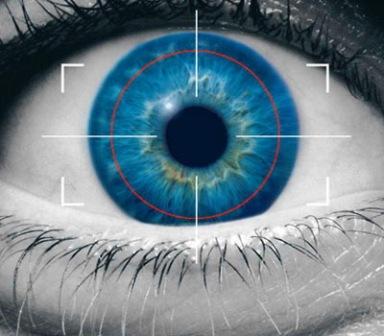INFOCORE
Jessica Goodrich thought she knew what she was doing when she created the Humanist community after her battle with Jason Hilgard.
But she never factored in the impact that InfoCore would have on her community. The Humanists turned from a society of professionals to a community of nonconformists.
Here's how it all happened...
|
infocore: the Background
All US citizens and residents were forced to register with the Department, and wear a tag that permitted them to be monitored by satellite wherever they went. Removing the tag was a crime punishable by jail. All vehicles were monitored by satellite at all times. All communications, whether by telephone, videophone or Internet, were monitored and analyzed by gigantic supercomputers. Every financial transaction, no matter how small, was registered and analyzed by the Department. Cash transactions above $100 were made illegal. In spite of all these extra precautions, the awesome forces of the Department of Homeland Security could not arrive at even a hint of the identity of the Citizens Seeking Global Justice. |
|
infocore: an information systems protocol
The Homeland Party had not yet succeeded in overriding the old U.S. Constitution with the new Homeland Security Bill of Rights, so they used InfoCore as a way of maximizing homeland security while remaining technically within the Constitution. In the simplest terms, InfoCore was just a protocol for the transmission of data which permitted no connectivity with other protocols. It also included in it certain digital markers which made it easy for all data transmitted through this protocol to be stored in a gargantuan relational database, the largest such database ever developed. |
|
infocore everywhere
Registration required filing basic information about yourself with the Federal Government, including your digitized fingerprints, iris scan and neurographic signature and all your digital access points, such as your PDA, your telephone or your computer. This information was attached to any digital information that you entered through InfoCore , so the Department of Homeland Defense could track your identity on its relational database. Within a few years, the private sector had no choice but to convert their own internal information systems to InfoCore. No industry could exist without some interaction with a Government agency and it became too cumbersome to maintain duplicate information systems with protocols that didn't communicate with each other.
This development had the effect of permitting the Government to monitor virtually all activity within the United States, and a vast amount of activity throughout the world, via InfoCore. Every time someone swiped a bar code in a grocery store to purchase an item, every time a GPS system guided a car, every time a telephone conversation was made, a picture was sent, a file was saved to a computer's memory, the Department of Homeland Defense knew about it and added it to their relational database. The National Security Agency, which had by then become a subsidiary organization to the Department of Homeland Defense, could use their fuzzy-logic algorithms, the largest and most complex creations ever developed by humanity, to identify suspicious patterns within this mass of data, and arrange a visit by Department personnel to a particular individual, long before that individual would have the opportunity to engage in activity that might put the homeland at risk – thus preventing another Columbus before it could ever pass beyond the planning stage. |
|
the new humanists: outcasts from infocore
Now, they were forced to choose between their careers and their Humanist commitment. As the months moved into years,
At the same time, a new influx of Humanists arrived over the years to replace these professionals. They were a different type. They were essentially refugees from the ever-expanding tentacles of the Department's influence over all aspects of human activity. They were outcasts from modern society, free-thinkers, political activists, non-conformists, eccentrics, all of whom had either refused to participate in InfoCore , or alternatively had been identified by the NSA as For these people, Tuckers Corner represented a refuge from the conformist pressure of modern society, the only place left where they could pursue their own individual goals in a society that would not only tolerate them, but actively encourage them to grow and nurture their individuality. [Click here to find out how InfoCore turned into InfoCurtain] |





 After the
After the  One by one, Government agencies began funneling all their information and communication through InfoCore. If any person or institution wanted to communicate with a Government agency, they had to become a registered InfoCore user to do so.
One by one, Government agencies began funneling all their information and communication through InfoCore. If any person or institution wanted to communicate with a Government agency, they had to become a registered InfoCore user to do so.
 As the momentum of InfoCore grew, the companies that provided Internet access and video and telephony connections also had no choice but to convert their systems to InfoCore for the same reasons of efficiency. Finally, within about fifteen years of the introduction of InfoCore, it became impossible for an individual or corporation in the United States to conduct any normal activity without using InfoCore, and without first having registered their digital identity.
As the momentum of InfoCore grew, the companies that provided Internet access and video and telephony connections also had no choice but to convert their systems to InfoCore for the same reasons of efficiency. Finally, within about fifteen years of the introduction of InfoCore, it became impossible for an individual or corporation in the United States to conduct any normal activity without using InfoCore, and without first having registered their digital identity.
 Jessica Goodrich would have none of this… She made it an article of faith for Humanist communities in the United States that they didn't link any system to InfoCore and therefore avoided registering their digital identities with the Government.
Jessica Goodrich would have none of this… She made it an article of faith for Humanist communities in the United States that they didn't link any system to InfoCore and therefore avoided registering their digital identities with the Government.
 This decision had far reaching implications for Tuckers Corner and the other Humanist communities. In the early years at Tuckers Corner, a number of Humanists had committed themselves to the movement and moved in, but continued to pursue their professional careers remotely, through the Internet. These people included lawyers, medical researchers, software engineers, marketing consultants and writers, among many others.
This decision had far reaching implications for Tuckers Corner and the other Humanist communities. In the early years at Tuckers Corner, a number of Humanists had committed themselves to the movement and moved in, but continued to pursue their professional careers remotely, through the Internet. These people included lawyers, medical researchers, software engineers, marketing consultants and writers, among many others.
 there was a new exodus from Tuckers Corner, as many of these professionals decided that the sacrifices demanded by Jessica Goodrich were just too much for them.
there was a new exodus from Tuckers Corner, as many of these professionals decided that the sacrifices demanded by Jessica Goodrich were just too much for them.
 suspicious individuals and whose lives had been made unbearable by unremitting Department attention.
suspicious individuals and whose lives had been made unbearable by unremitting Department attention.